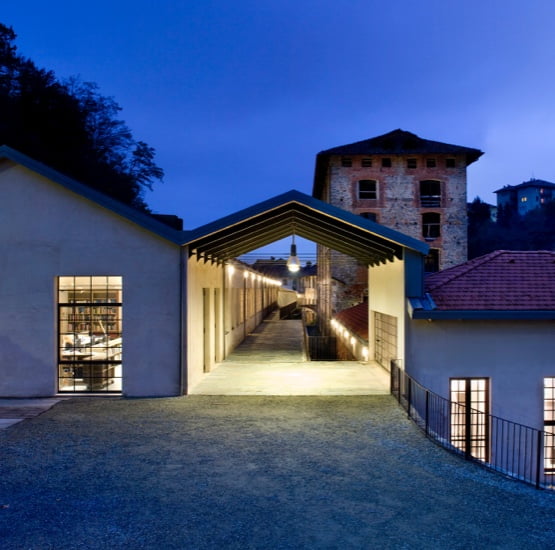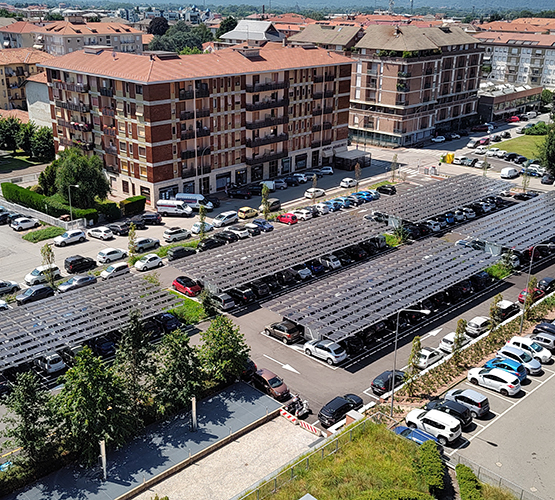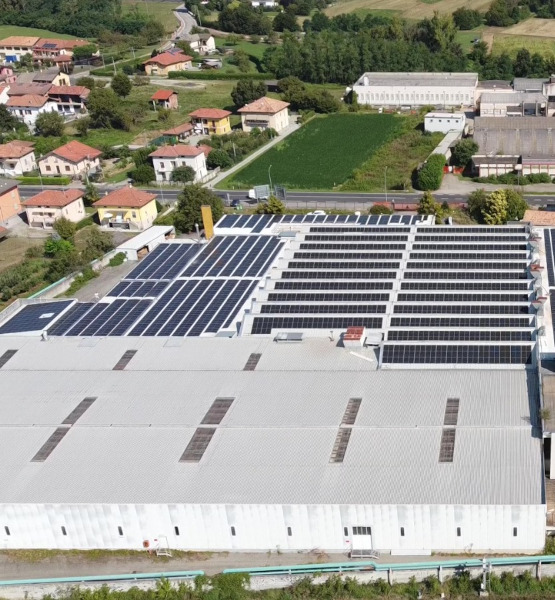Sella offsets the impact of residual CO2 emissions
The Sella group, alongside the implementation of its CO2 emission mitigation plan and thanks to the sustainable initiatives already carried out over the years, has chosen since 2021 to offset residual emissions over time by financing some international projects in collaboration with LifeGate.
The Group has implemented numerous interventions over the years that have led to a reduction in CO2 emissions associated with its own emissions, despite significant growth of the Group. It has chosen to continue the fight against climate change with an ambitious further mitigation plan.
Since 2021, the Group has decided to offset the impact of all residual CO2 emissions calculated using the location-based methodology from its operations, excluding financed emissions. These residual emissions have been offset through the purchase of carbon credits linked to selected projects, certified by third parties according to international standards such as the Verified Carbon Standard (VCS) and Gold Standard.


The Sella group measures greenhouse gas (GHG) emissions divided into scopes 1, 2, and 3 as defined by the GHG Protocol reporting standards "A Corporate Accounting and Reporting Standard" (2004 version) and "Corporate Value Chain (Scope 3) Accounting and Reporting Standard." The intervention, which concerns the CO2 emissions of all the Group's companies, involves the following areas in detail:
- direct emissions (Scope 1) related to the use of fossil fuels for heating, electricity production (e.g., generators supporting the operational continuity of data centers), refueling of the company car fleet, and the environmental impact of refrigerant gases used in air conditioning systems;
- indirect emissions from the electricity purchased and consumed by the Group's companies, from that produced and self-consumed through photovoltaic/hydroelectric plants, and from district heating (Scope 2 location-based methodology);
- other indirect emissions (Scope 3) related to its operations (own emissions) deriving from the purchase of office materials and office machines (categories 1-2), waste production and disposal (category 5), upstream activities of Scopes 1 and 2 associated with fossil fuels and electricity (so-called energy carrier emissions) (category 3), business travel (category 6), and, starting from 2021, employee and collaborator commuting (category 7).
Group strategy to reduce CO2 emissions and their effects


The climate change strategy approved by the Parent Company's Board of Directors aims to reduce its own CO2 emissions and their effects. Building on the good results already achieved, the Group's objective is to continue with initiatives to mitigate environmental impact based on a scientifically defined decarbonization path that is more challenging than the 1.5°C target of the Paris Agreement. For this reason, emission reduction targets for 2030 have been defined, with 2022 as the base year, in absolute emission values as follows:
- Scope 1 and Scope 2 market-based methodology: 74% reduction, broken down as follows:
- Scope 1 for the building component: 75% reduction
- Scope 1 for the car fleet component: 80% reduction
- Scope 2 market-based methodology: maintaining only emissions related to district heating, which depend on the decarbonization plans of steam-supplying utilities, and eliminating emissions associated with energy purchases in India and the United Kingdom; - purchase of electricity from renewable sources, both in Italy and abroad, equal to 100% of consumption.
In addition to these targets, defined in line with the guidelines publicly available from SBTi, two further "managerial" targets have been added:
- self-production of electricity from renewable sources with a total installed capacity of approximately 17 MW by 2026. This capacity will allow for annual energy production substantially equivalent to the Group's total consumption. The target for 2025 is to install plants for an additional 8.3 MW;
- monitoring of emissions avoided thanks to the Group's renewable energy production plants, both for the component intended for self-consumption and for that intended for sale to the grid operator, so that the environmental impact of electricity consumption, net of regulatory requirements defining self-consumption, is virtually zero. Considering the uncertainty related to the regulations governing the construction of photovoltaic plants, a prudent target of a 75% reduction in emissions calculated using the "adjusted" Location-Based methodology, i.e., measured by fully considering self-production, is defined.


To achieve these objectives, the Group has defined and started a transition plan that is based on the following decarbonization levers:
- conversion of fossil fuel boilers through the installation of electric heat pumps serving the headquarters and branches;
- modernization of the heat distribution network in the headquarters;
- replacement of the type of refrigerant gas used in the air conditioning systems of headquarters and branches with one with a lower environmental impact;
- containment of energy consumption and energy efficiency;
- production of electricity from renewable sources through owned plants;
- reduction of the environmental impact of corporate mobility.
Focus on compesation projects
Sella Group continues the path of reducing its carbon footprint and offsetting CO2 equivalent emissions undertaken during the three-year period 2021-2023 when, through the purchase of carbon credits, it financed three initiatives in Europe, Africa and Central America, certified by international bodies:
- in Romania: a project to reduce emissions related to plastic recycling, the first certified for offsetting in Europe, which uses PET waste for recycling by significantly (up to 48%) lowering greenhouse gas emissions from the production of plastic products;
- in Zimbabwe: a project dedicated to protecting the Kariba forest. Since 2011, nearly 785 thousand hectares have been preserved from deforestation and land degradation, effectively preventing the release of more than 3.5 million tons of carbon dioxide into the atmosphere each year;
- in Guatemala: a project to protect the landscape of the state's Caribbean coast (nearly 60 thousand hectares) to reduce greenhouse gas emissions by promoting ecosystem conservation, economic activities and sustainable practices.
For the three-year period 2024-2026, the Group has decided to support the following projects, again through the purchase of certified carbon credits:
- in India: two projects, one wind and one photovoltaic renewable energy generation project to reduce dependence on fossil fuels;
- in Kenya: a project to distribute efficient cooking stoves to reduce emissions and improve the health conditions of the people who use them to prepare daily meals.


